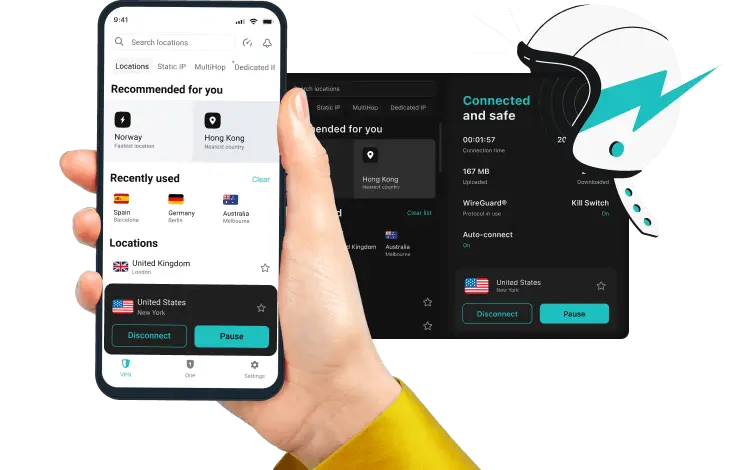
VPNs (Virtual Private Networks) have become an essential tool for many internet users, particularly for those experiencing buffering issues with IPTV (Internet Protocol Television) due to ISP (Internet Service Provider) throttling. Here’s how VPNs can effectively prevent these problems and ensure a smooth streaming experience.
Understanding ISP Throttling: ISPs often throttle internet connections to manage network traffic and conserve bandwidth, especially during peak usage times. Throttling can significantly affect data-intensive activities such as streaming IPTV, leading to buffering, reduced video quality, and an overall poor viewing experience. ISPs may throttle specific types of traffic, like video streaming, or target specific services competing with their own offerings.
How VPNs Work: A VPN encrypts all the data transmitted between a user’s device and the internet. It routes this data through a secure server, masking the user’s IP address and concealing the nature of their online activities. This encryption and routing prevent ISPs from seeing the specific type of traffic, such as IPTV streaming, making it harder for them to selectively throttle it.
Preventing Buffering with VPNs:
- Encryption: By encrypting the data, a VPN ensures that the ISP cannot distinguish between different types of traffic. This means the ISP cannot identify and throttle streaming data specifically, which helps maintain consistent speeds for IPTV.
- IP Masking: VPNs mask the user’s real IP address, making it appear as if the data is coming from the VPN server rather than the user’s device. This anonymization makes it difficult for ISPs to target individual users for throttling based on their streaming activities.
- Bypassing Throttling Policies: Some ISPs throttle traffic based on geographical regions or user profiles. A VPN can connect users to servers in different locations, bypassing regional throttling policies and allowing access to a less congested network.
- Consistent Speeds: By preventing ISPs from detecting and throttling streaming traffic, a VPN helps maintain a stable and consistent internet speed. This reduces buffering and enhances the overall quality of IPTV streaming.
Choosing the Right VPN: For effective prevention of buffering, users should select a reputable VPN service known for high-speed connections, strong encryption protocols, and reliable performance. It’s also beneficial to choose a VPN with a wide range of server locations to ensure flexibility and optimal speed.
In conclusion, VPNs play a crucial role in preventing IPTV buffering caused by ISP throttling. By encrypting data, masking IP addresses, bypassing regional throttling, and maintaining consistent speeds, VPNs ensure a smoother and higher-quality streaming experience, allowing users to fully enjoy their IPTV services without interruptions.


